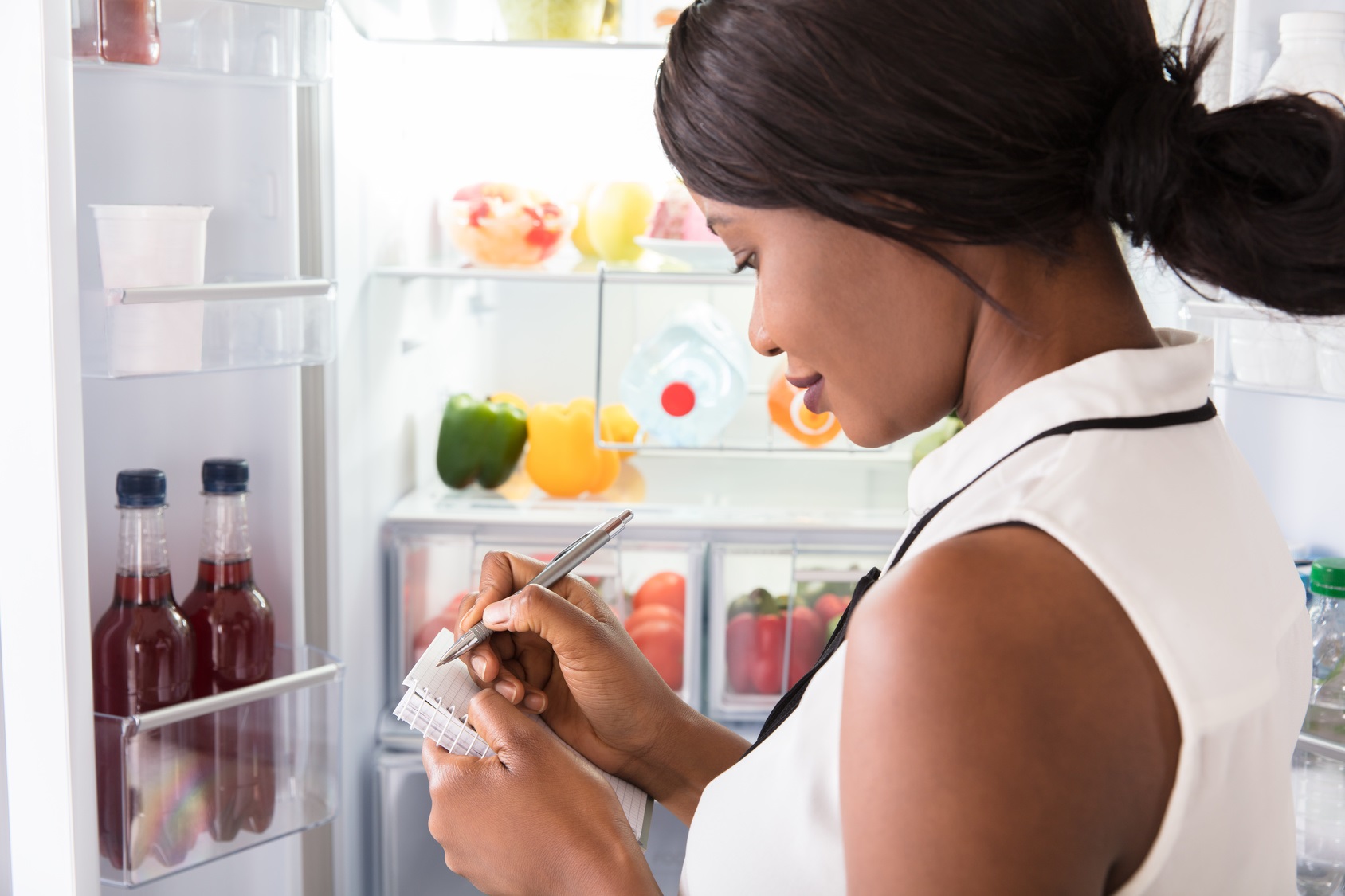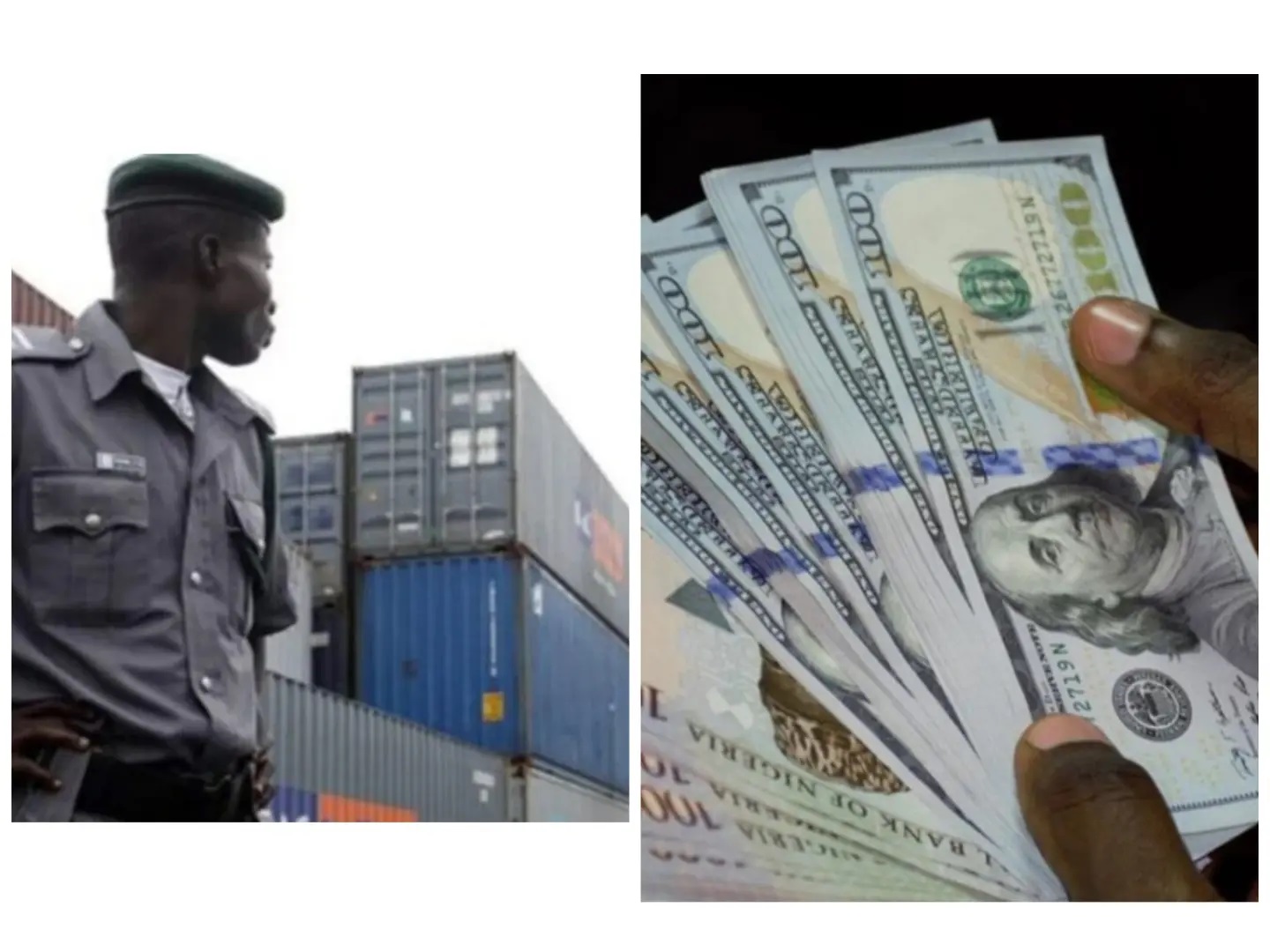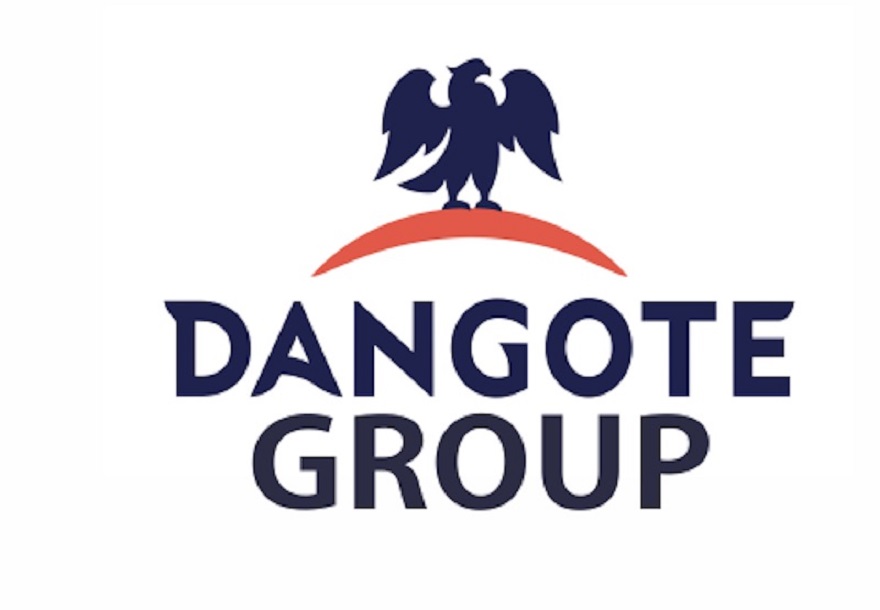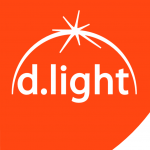Economy
Naira Stability Buoys Nigeria’s Consumer Confidence Index in Q2—Report

By Dipo Olowookere
A new report released by South Africa-based Nielsen Africa has revealed Nigeria’s Consumer Confidence Index (CCI) for the second quarter of 2018 recorded a very healthy increase of nine points to 122, while Ghana’s CCI for the same quarter dropped 12 points to 108.
In an emailed statement to Business Post, Nielsen Africa noted that in terms of Nigeria’s performance, its Sub Saharan Africa chief, Mr Bryan Sun, submitted that, “The stability of forex rates and a steady Naira has led to stable retail prices of most manufactured goods and imported staples, resulting in a recovery in confidence levels in Nigeria. The improvements seen in the economic environment are reflected in the overall enhanced sentiment, with 83% of Nigerians describing the state of their personal finances over the next year as excellent or good.”
He stated further that this has resulted in a more positive outlook in terms of Nigerian consumers immediate-spending intentions, which has risen to 48% (up from 38% in Q1) who say now is a good or excellent time to purchase what they need or want.
This increasingly positive sentiment is also reflected in their job prospects, with 67% viewing them as excellent or good (up from 56% in Q1’18) and 29% as not so good or bad.
More cash, more spend
Looking at whether Nigerians have spare cash, a majority of 54% said yes, up nine points from the previous quarter, while 46% said no. Looking at what their spending priorities are once they do have spare cash, the highest number 86% would put it in savings followed by 82% on home improvements, 72% on new clothes and 67% would use their spare cash for both out of home entertainment and investing in shares and mutual funds.
When asked about the changes in their spending to save on household expenses, compared to this time last year, 80% of Nigerians agreed that they have changed their spending habits.
In terms of the actions they took to save money last year, the highest number (66%) said they spent less on at home entertainment, followed by 57% who took less holidays, 42% who spent less on new clothes and 39% who delayed the replacement of major household items.
Some of the major concerns driving this more cautionary mindset include 19% who think economy is their biggest concern over the next six months, whereas 12% consider food prices and 11% said work/ life balance is their biggest concern. When asked what their second biggest concern would be over the next six months, 19% said food prices, 13% said work/life balance and 12% mentioned job security.
Growing uncertainty in Ghana
From a stable confidence level in Q1’18, Ghana dropped 12 points this quarter to 108, the lowest since quarter 3, 2016.
Mr Sun comments; “Though consumer confidence in Ghana has declined in Q2’18, it still leans on the positive side, 100 being the neutral point on the index. The declining economic growth in Ghana, subdued performance in the non-oil and industrial sector, and poor agricultural performance has led to declining confidence levels this quarter.”
He adds that this uncertain sentiment is reflected by the six point drop in Ghanaians, down to 79%, who describe the state of their personal finances over the next year as excellent or good, and 17% (increase of 10% from Q1’18) who say that state of their personal finances is “not so good” or “bad”.
“It’s therefore no surprise that Ghanaian consumers’ immediate-spending intentions have declined, with only 35% of respondents (down from 48% in Q1’18) who say now is a good or excellent time to purchase what they need or want, versus the 61% who said it was not,” reports Mr Sun.
This declining sentiment is also reflected in Ghanaians’ job prospects, which has dropped 11 points to 54% who view them as excellent or good and a 10 point rise to 39% who think their job prospects are not so good or bad compared to the previous quarter.
Disposable income
Looking at whether Ghanaians have spare cash to spend, there was an even 50/50 split between those respondents who said yes and no. Looking at what their spending priorities are once they do have spare cash, the highest number 78% would spend it on home improvements, 77% would put it into savings and 61% would spend on new clothes.
When asked about the changes in their spending to save on household expenses, compared to this time last year, 61% of Ghanaians agreed that they have changed their spending habits. In terms of the actions they took to save money last year, the highest number (49%) said they spent less on at home entertainment, followed by 48% who took less holidays, 32% who delayed the replacement of major household items and 31% who spent less of new clothes.
The factors driving this more cautionary mindset are embodied in Ghanaians biggest and second biggest concerns over the next six months. The highest number of respondents (14%) said health is their biggest concern, followed by work/life balance (13%), and food prices and the economy (both at 12%).
When asked about their second biggest concern over the next six months, 16% of respondents said work/life balance, 12% said their kids’ education/welfare, and food prices and higher fuel prices both recorded 11%.
Elaborating on these results, Sun says: “Despite the decline in confidence levels, Ghana’s outlook is still positive. A strong domestic demand and favourable performance on oil, cocoa, and gold, coupled with ongoing investment in the country, gives hope for a brighter second half in 2018 for the country, resulting in a revival of consumer sentiments and spend”.
Economy
NCS Denies Manipulating FX Rates in Import, Export Valuation

By Adedapo Adesanya
The Nigeria Customs Service (NCS) has clarified how foreign exchange rates are applied in its import and export valuation, saying it neither determines nor alters rates used in cargo clearance.
The service, in a statement by its National Public Relations Officer, Mr Abdullahi Maiwada, explained that it relies solely on official figures transmitted by the Central Bank of Nigeria (CBN).
Mr Maiwada stated that recent public commentary surrounding forex pricing, investor reactions, and customs valuation had prompted NCS to explain the operational framework guiding its digital clearance platform.
“It is worthy of note that the reported exchange rate of N1,451.63/US$ for February 6, 2026 did not originate from the B’Odogwu system.
“That figure was sourced from trade.gov.ng, a legacy public trade information portal that does not reflect live Customs processing data,” it stated.
According to him, all exchange rates used in trade processing are automatically integrated into its Unified Customs Management System, known as B’Odogwu, which it described as the sole official portal for declarations, clearance, and valuation.
“It is important to provide factual clarification on how exchange rates are received, processed, and applied within the NCS digital clearance system, B’Odogwu, a Unified Customs Management System which serves as the sole official platform for Customs declarations, clearance, and valuation,” the statement reads.
The NCS spokesman said the Service receives rates electronically from the apex bank and applies them uniformly across commands nationwide, ensuring transparency, predictability, and compliance with statutory fiscal and monetary policies.
He argued that NCS does not generate or manipulate exchange rates under any circumstances.
Instead, it explained that the platform operates structured data-integration protocols designed to ingest and apply exchange-rate feeds exactly as transmitted.
“For the avoidance of doubt, the Nigeria Customs Service does not independently determine, generate, alter, or apply margins to foreign exchange rates used for import and export valuation.
“All exchange rates applied within the B’Odogwu platform are official rates electronically transmitted by the Central Bank of Nigeria, which remains the competent authority for exchange rate determination under Nigeria’s monetary framework,” Mr Maiwada added.
Economy
Dangote Gets $400m Chinese Construction Equipment for Refinery Expansion

By Aduragbemi Omiyale
To fast track the expansion of its Lagos-based refinery, Dangote Group has sealed a $400 million construction equipment deal with one of the leading manufacturers of construction machinery in China, XCMG Construction Machinery Company Limited.
A statement from the conglomerate disclosed that beyond refining, the expansion programme will see polypropylene production increase from 900,000 metric tonnes per annum to 2.4 million metric tonnes per annum.
Urea capacity in Nigeria will be tripled from 3 million to 9 million metric tonnes per annum, in addition to the 3 million metric tonnes per annum capacity in Ethiopia, strengthening the Group’s position as the largest urea producer globally.
There are plans to expand the Dangote Petroleum Refinery and Petrochemicals from 650,000 barrels per day to 1.4 million barrels per day, positioning it to become the largest refinery in the world.
The Chinese deal will enable Dangote Group to acquire additional wide range of advanced construction equipment to support ongoing and forthcoming projects across refining, petrochemicals, agriculture and large-scale infrastructure development. The new equipment will complement existing assets deployed for the refinery expansion, which is expected to be completed within three years.
Production capacity for Linear Alkyl Benzene (LAB) will also be increased to 400,000 metric tonnes per annum, positioning the Group as the largest producer in Africa and strengthening supply to the detergent and cleaning agents manufacturing industry. Additional base oil production capacity also forms part of the broader expansion programme.
Dangote Group described the agreement as a strategic investment aimed at deepening its construction footprint and accelerating its ambition to build a $100 billion enterprise by 2030.
“The additional equipment we are acquiring under this partnership will significantly enhance execution across our projects. With this investment, we are positioning ourselves to become the number one construction company in the world,” it stated.
Economy
NASD Unlisted Security Index Crosses 4,000 Basis Points

By Adedapo Adesanya
The NASD Over-the-Counter (OTC) Securities Exchange further appreciated by 0.67 per cent on Monday, February 16.
During the session, the NASD Unlisted Security Index (NSI) reached another milestone after it chalked up 26.65 points to 4,001.42 points from the preceding session’s 3,974.77 points.
Equally, the market capitalisation added N15.94 billion to end the trading day at N2.394 trillion, in contrast to last Friday’s N2.378 trillion.
Yesterday, the volume of securities rose by 389.6 per cent to 46.2 million units from 9.4 million units, but the value of securities went down by 24.3 per cent to N703.6 million from N703.6 million, and the number of deals dipped 2.2 per cent to 44 deals from the preceding session’s 45 deals.
Central Securities Clearing System (CSCS) Plc was the most traded stock by value on a year-to-date basis with 31.4 million units exchanged for N1.8 billion, followed by Resourcery Plc with 1.05 billion units traded for N408.6 million, and Geo-Fluids Plc with 71.2 million units valued at N296.9 million.
Resourcery Plc finished the trading session as the most traded stock by volume on a year-to-date basis with 1.05 billion units worth N408.6 million, trailed by Geo-Fluids Plc with 71.2 million units sold for N296.9 million, and CSCS Plc with 31.4 million units sold for N1.8 billion.
During the trading session, there were four price gainers and one price loser, led by CSCS Plc, which went down by 38 Kobo to N80.09 per share versus last Friday’s closing value of N80.47 per share.
However, MRS Oil Plc increased its price by N17.00 to N187.00 per unit from N170.00 per unit, FrieslandCampina Wamco Nigeria Plc gained N5.83 to trade at N71.35 per share compared with the previous session’s N65.52 per unit, Geo-Fluids Plc appreciated by 20 Kobo to N3.50 per share from N3.30 per share, and First Mortgage Bank Plc grew by 7 Kobo to 82 Kobo per unit from N75 Kobo per unit.
-

 Feature/OPED6 years ago
Feature/OPED6 years agoDavos was Different this year
-
Travel/Tourism10 years ago
Lagos Seals Western Lodge Hotel In Ikorodu
-

 Showbiz3 years ago
Showbiz3 years agoEstranged Lover Releases Videos of Empress Njamah Bathing
-

 Banking8 years ago
Banking8 years agoSort Codes of GTBank Branches in Nigeria
-

 Economy3 years ago
Economy3 years agoSubsidy Removal: CNG at N130 Per Litre Cheaper Than Petrol—IPMAN
-

 Banking3 years ago
Banking3 years agoSort Codes of UBA Branches in Nigeria
-

 Banking3 years ago
Banking3 years agoFirst Bank Announces Planned Downtime
-

 Sports3 years ago
Sports3 years agoHighest Paid Nigerian Footballer – How Much Do Nigerian Footballers Earn












